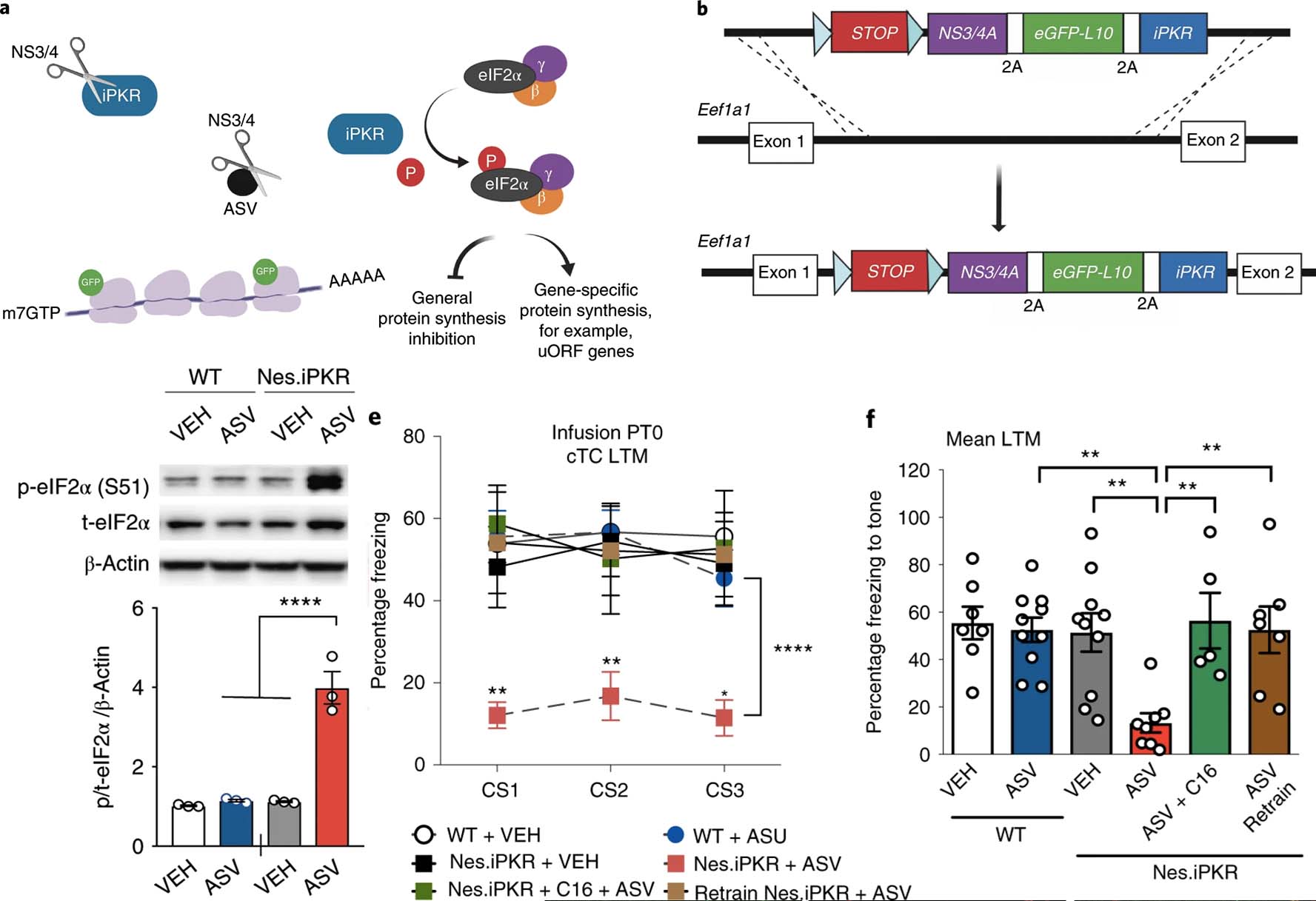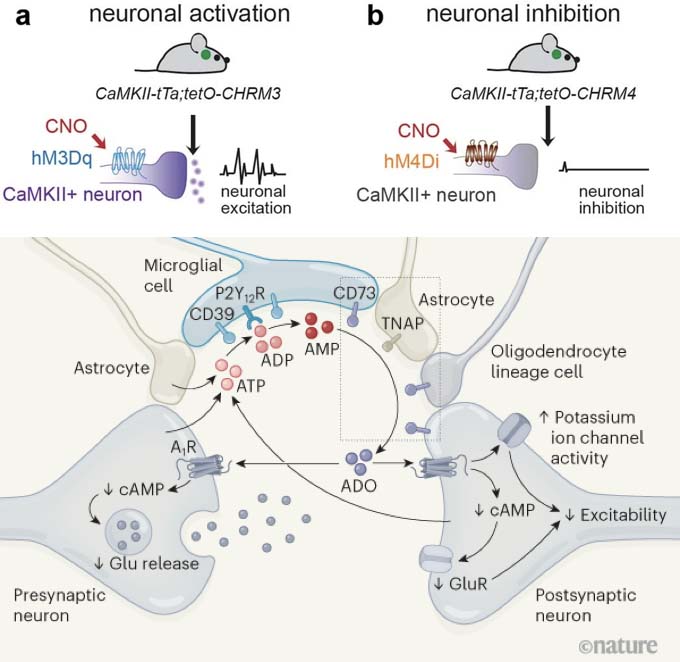-
P. Shrestha, P. Ayata*, P. Herrero-Vidal, F. Longo, A. Gastone, J. E. LeDoux, N. Heintz, E. Klann. Cell-Type-Specific Drug-Inducible Protein Synthesis Inhibition Demonstrates That Memory Consolidation Requires Rapid Neuronal Translation. Nat Neurosci, 2020, 23 (2), 281–292. DOI: https://doi.org/10.1038/s41593-019-0568-z. (* co-first author)

This paper introduced a novel chemogenetic mouse model that for the first time revealed the temporal and cell type-specific requirement of protein synthesis for memory consolidation.
P. Ayata, A. Schaefer. Innate Sensing of Mechanical Properties of Brain Tissue by Microglia. Current Opinion in Immunology, 2020, 62, 123–130. DOI: https://doi.org/10.1016/j.coi.2020.01.003.
S. L. Lim, C. J. Rodriguez-Ortiz, H.-W. Hsu, J. Wu, J. Zumkehr, J. Kilian, J. Vidal, P. Ayata, M. Kitazawa. Chronic Copper Exposure Directs Microglia towards Degenerative Expression Signatures in Wild-Type and J20 Mouse Model of Alzheimer’s Disease. Journal of Trace Elements in Medicine and Biology, 2020, 62, 126578. DOI: https://doi.org/10.1016/j.jtemb.2020.126578.
A. Badimon, H. J. Strasburger, P. Ayata, X. Chen, A. Nair, A. Ikegami, P. Hwang, A. T. Chan, S. M. Graves, J. O. Uweru, C. Ledderose, M. G. Kutlu, M. A. Wheeler, A. Kahan, M. Ishikawa, Y.-C. Wang, Y.-H. E. Loh, J. X. Jiang, D. J. Surmeier, S. C. Robson, et al. Negative Feedback Control of Neuronal Activity by Microglia. Nature, 2020, 586 (7829), 417–423. DOI: https://doi.org/10.1038/s41586-020-2777-8.

Using chemogenetic models, microglia depletion, and pharmacology, this paper revealed a previously unknown role for microglia, providing negative feedback to active neurons to curb their hyper excitability.
Archive
